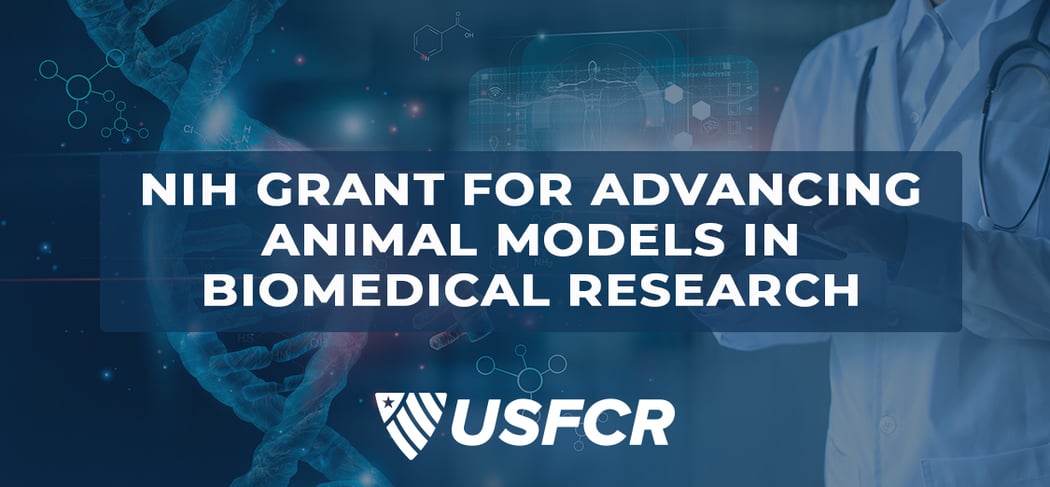
“Animal models are essential for several biomedical research fields such as cancer biology and therapeutics, neuroscience, pharmacology and toxicology, neurobiology of diseases, endocrinology, public health, palliative medicine, also, in studies in human and animal biology and for the discovery and testing of new drugs, vaccines, and other biologicals [...] Currently, these models address current research priorities, considered as those imposing major global threats to human and animal health.”
– Adriana Domínguez-Olivia, et al., 20231
The National Institutes of Health (NIH), through the Department of Health and Human Services (DHHS), is supporting biomedical research projects to improve the rigor, reproducibility, and translatability of animal models via the development and implementation of broadly applicable technologies, tools, and resources. This opportunity stresses that the proposed studies, resources, models, or technologies must either explore multiple organ systems or be applicable to diseases and processes impacting many organ systems and must address research interests of multiple NIH Institutes & Centers (IC’s).
Eligible applicants include:
- Public/State-controlled & Private Institutions of Higher Education
- 501c3 & non-501c3 Nonprofits
- Forprofit Organizations
- Local Governments (state, county, city/township, special district,
- Federally/Non-federally Recognized Indian/Native American Tribal Governments
- Federal Governments (eligible agencies of federal government, U.S. territories/possessions)
- Independent School Districts
- Public Housing Authorities/Indian Housing Authorities
- Native American Tribal Organizations (other than Federally Recognized Tribal Governments)
- Faith-based or Community-based Organizations
- Regional Organizations
Non-domestic (non-U.S.) foreign institutions and non-domestic (non-U.S.) components of U.S. organizations are not eligible to apply. Foreign components, as defined in the NIH Grant Policy Statement, are allowed.
Examples of suitable projects under this FOA include, but are not limited to:
- High-efficiency gene editing technologies, including gene mutation and tagging, for developing animal models.
- Nanobodies for a large quantity of proteins expressed in model organisms involved in multiple body systems or disease processes, especially targets that are conserved across species.
- Functional antibodies that can alter the function of proteins for animal research relevant to multiple areas of human health and disease.
- Biosensors for genotypic, phenotypic, physiological, and/or metabolomic monitoring in animal models.
- Animal models or resources for detecting and understanding protein-protein interactions in cells and organelles.
- High-efficiency and high-resolution imaging technologies, tools, or atlases for visualization and integrative analysis of cells and cellular networks across multiple animal models, especially tools that can be broadly accessed by the research community.
- Technologies that facilitate systematic animal model phenotyping at multiple scales (single-cell, tissue, organ, whole organism) and/or using multiple types of data (transcriptomics, proteomics, metabolomics, morphology, behavior).
- Artificial intelligence (AI) or machine learning (ML) tools to integrate the collection of multi-omics, biochemical, physiological, morphological, and behavioral data from animal models.
- AI or ML strategies that allow user-friendly informatic searches and integrative mining of bioinformatic and phenomic data for comparative human-animal biology.
- Technologies to improve the efficiency, reliability, and accuracy of developing humanized animal models.
- Genetic and biochemical screening technologies with animal models.
The Grant Writing Team at USFCR is now accepting applicants for grant writing support regarding projects for the PAR-23-040 Development of Resources & Technologies for Enhancing Rigor, Reproducibility, and Translatability of Animal Models in Biomedical Research (R01) Grant. Please fill out the following grant assessment form prior to June 5, 2024.
Don't miss out on the funding that could elevate your project to the next level!
If you have questions regarding your organization's unique program feel free to contact us at (877) 252-2700 or email grants@usfcr.com.
More Hot Grants
USDA Accepts Applications for $500M High Blend Fuel Infrastructure Investment
USDA Investing Over $1 Billion in Farmers & Rural Small Businesses Across the US.
SAMHSA Offering $10.4 Million Towards Rural Emergency Medical Services Training
1. Domínguez-Olivia, A., Hernández-Ávalos, I., Martínez-Burnes, J., Olmos-Hernández, A., Verduzco-Mendoza, A., and Mota-Rojas, D. (2023). The importance of animal models in biomedical research: Current insights and applications. Animals. 12, 1223. . https://doi.org/10.3390/ani13071223


